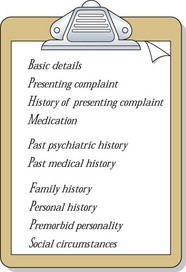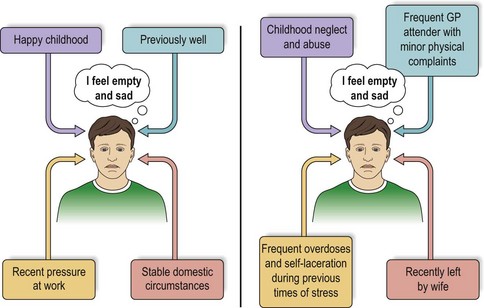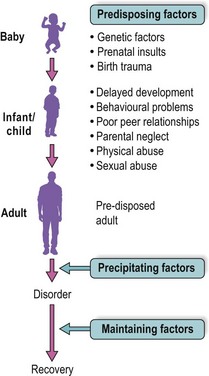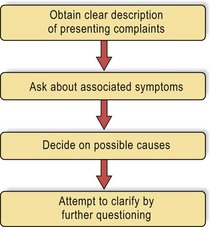History and aetiology
The standard sections covered by the psychiatric history are shown in Figure 1. An important thing to note is how similar these are to those covered by the standard medical history. As you are probably already familiar with medical history-taking, you will already have many of the skills necessary for taking a psychiatric history.
The most important difference with the psychiatric history is the amount of background information you need to collect. This is because it is meaningless to consider psychiatric disorders outside the context in which they occur, as exemplified in Figure 2. Because of this, the psychiatric history includes two sections (personal history and premorbid personality) which are not used in other medical specialities. For the same reason, social circumstances are particularly important in psychiatry and should be recorded in detail. As well as giving you a better understanding of the patient and their problems, this background information will help you understand the aetiology of the patient’s problems.
Aetiology of psychiatric disorders
Psychiatric aetiology should be split into three components:
In other words: why is this patient vulnerable to developing this disorder, what caused them to develop it now, and what is stopping them getting better? Possible aetiological factors are shown in Figure 3. Identifying these factors is important for several reasons.
The psychiatric history
Presenting complaint
This part of the psychiatric history is very similar to that in other medical specialities. The basic principles are laid out in Figure 4. The reasons for presentation are determined and then clarified by further questioning. Questions are then asked about other symptoms that will help clarify the diagnosis.
< div class='tao-gold-member'>
Stay updated, free articles. Join our Telegram channel

Full access? Get Clinical Tree










